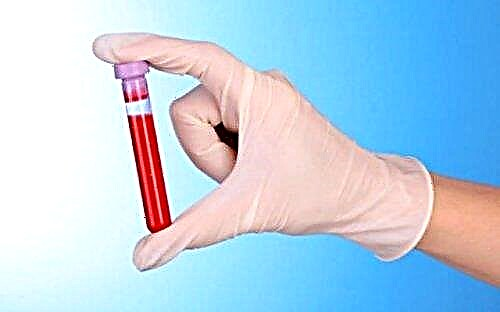
Childbirth can begin suddenly: with the outpouring of water, the start of regular contractions. In any situation, a woman needs to clearly understand how to act in this situation. In this article, we will tell you how to recognize real labor pains, and what should be the algorithm for the actions of a woman in labor, if childbirth has begun.

How to understand that it all began?
In the last weeks before giving birth, a woman can be tormented by a variety of sensations - stretching in the lower back, aches in the lower abdomen. The so-called mucous plug can move away, vaginal discharge changes color, diarrhea begins, appetite disappears or appears. All this is not childbirth, but only their harbingers.
The fact that the most real labor pains have begun is indicated by the appearance of special sensations that resemble pain during menstruation. But their main distinguishing feature, which will make it possible to recognize contractions - a certain frequency. Usually, the first contractions are repeated every 25-30 minutes, and even more. The fight itself does not last long - about 10-15 seconds. But each subsequent fight is getting stronger. The time intervals between them are shortened.

The first thing to do is to arm yourself with a watch or a special program for a smartphone, the so-called contraction counter, and calculate how often the sensations of tension in the uterus and lower back appear, and after how long they repeat.
Even if the plug did not come off the day before, and the cervix, according to the results of a recent examination by a gynecologist, is not ready, you should not ignore the periodic cramping sensations. Their appearance does not mean that you need to immediately grab the bag and rush to the hospital at full steam.
The woman in labor has several hours to stay at home, tune in to childbirth, calm down, check if everything you need is collected.

When to call an ambulance?
The first contractions in obstetrics are called latent, and this period of labor lasts the longest. In primiparous - up to 8-10 hours, for those who have already given birth earlier - up to 6-8 hours. During this time, the neck will open by about three centimeters. The pains are not yet intense, and therefore time suffers.
You need to call an ambulance in case of contractions, when uterine spasms recur every 5-7 minutes, if the first birth is coming. If a woman has already given birth, then she needs to go to the hospital a little earlier, since all the stages in her are faster. It is recommended to call an "ambulance" if the frequency of contractions is once every 10 minutes.

However, there are situations when you need to call the emergency room without waiting and counting the time. So, women who had lost their water before the onset of labor needed quick hospitalization. It is not worth waiting for the uterus to open. Also, an ambulance is called without prior waiting when blood from the genital tract appears - it is possible that placental abruption has occurred, and the woman needs to have a cesarean section as soon as possible in order to save the baby.
If regular contractions lasted several hours, and then suddenly stopped, you also need to urgently go to the hospital, since primary birth weakness is not excluded, which requires drug stimulation.

When calling the emergency team, be sure to say what time did the contractions start, how often do they go now, if there are general symptoms of worsening of the condition - dizziness, vomiting, loss of consciousness, severe abdominal pain, unusual discharge from the genitals.

Procedure
It has been proven that the absence of fuss and peace of mind of a woman in labor is the key to a quick and easy delivery. Therefore, let's draw up the correct algorithm of actions, following which, a woman can calm down and tune in correctly.
Checking things and documents
Usually, women, long before 39-40 weeks, put a bag with things and documents in the hospital. The beginning of regular contractions is a great time to check if everything is ready. From the documents for hospitalization, you will definitely need a passport, a medical insurance policy, an exchange card and a birth certificate.
If it was not possible to pre-assemble the bag, then you should not panic and in a hurry try to collect everything you need at the last moment. Limit yourself to the necessary documents and what you need during the birth process. All you need is rubber slippers, which are easy to clean, and a bottle of still water (about a liter). You can take a mobile phone and charger.
Everything else, if things are not collected, will be brought later by relatives or friends according to the list prepared by you. It is not necessary to take a nightgown and a dressing gown with you right away, since the birth will take place in an official shirt, not as beautiful as yours, but sterile, and this is its main advantage.

How to put yourself in order?
Time allows you to put yourself in order - you can wash and dry your hair, take a warm shower. You shouldn't lie in the bathtub - at any moment the water can leave, and then this important event can go unnoticed. If there are assistants, you can use their help and shave your pubis - you still have to do this, but in the conditions of the admission department of the maternity hospital.
The nurse on duty is not always neat and delicate in her movements; for her, shaving your pubis is a routine job. If there are no assistants, take a new disposable machine with you.

The bath does not need to be taken for safety reasons for the baby. If the plug has come off, then the infection along the ascending pathways can get inside the uterus from tap water. Be sure to remove the nail polish, trim them. A long manicure is not the best solution for childbirth, moreover, dirt and microbes can accumulate under the nails.
Is it ok to eat and drink?
With the onset of contractions, it is not recommended to eat tightly. But you can drink, however, in moderation.
You can drink tea if you feel hungry, it is permissible to eat something, only light, not burdensome for the stomach, something that is quickly digested, such as fruit or low-fat yogurt. Heavy food should not be taken due to safety reasons - it is possible that anesthesia may be required during childbirth. If there is an emergency caesarean section, general anesthesia is done strictly on an empty stomach.

Take one chocolate with you to the hospital, preferably milk, without nuts and raisins. You can have a snack with it an hour after giving birth, when the feeling of hunger will be, perhaps, the main and sharpest of all human feelings.
How to make contractions easier?
To endure contractions easier, you do not need to lie down and expect them to intensify. You can walk, take those positions in which a woman is most comfortable waiting out the moment of uterine spasm. Walking, sitting, standing, squatting - all this is perfectly acceptable, even to the point of pushing.
Try to breathe correctly. When fighting, do deep breath and slow long exhalation. In between contractions, try to relax, use your imagination for this. Imagine that you are on the beach right in the surf line, this will help to more easily tolerate contractions at all stages of labor.


Don't panic, don't run or shout, everything is going according to plan.
After all, you have been waiting for this moment for a long nine months, and you probably started dreaming of a child even earlier. Think of each contraction as a countdown, bringing you closer to meeting your baby.

Upon arrival at the hospital
If the exchange card is signed by the chief medical officer or the head physician of a particular maternity hospital, an ambulance will deliver the patient exactly there, night and day. If the exchange card is not signed, the woman in labor with contractions will be taken to the maternity hospital on duty. Therefore, be sure to measure the distance to the obstetric facility from your home, choosing the time to call the "ambulance". In the admission department, inform the time of the beginning of the contractions, if the water has receded, tell us what color they were, this will help the doctor to correctly and quickly choose the tactics of obstetrics.
Be sure to ask about what medications they give you. Do not take any pills, potions, or injections before arrival. Warn about any diseases and allergies you have.


You will learn how and what is the best way to go to the hospital in the following video.



